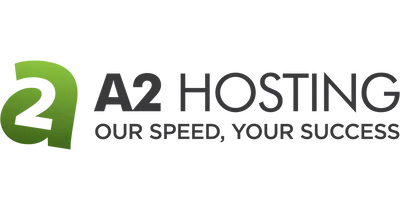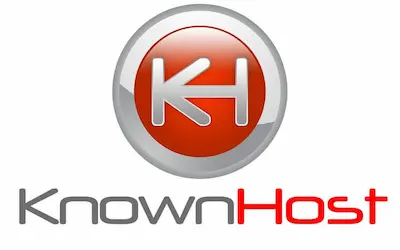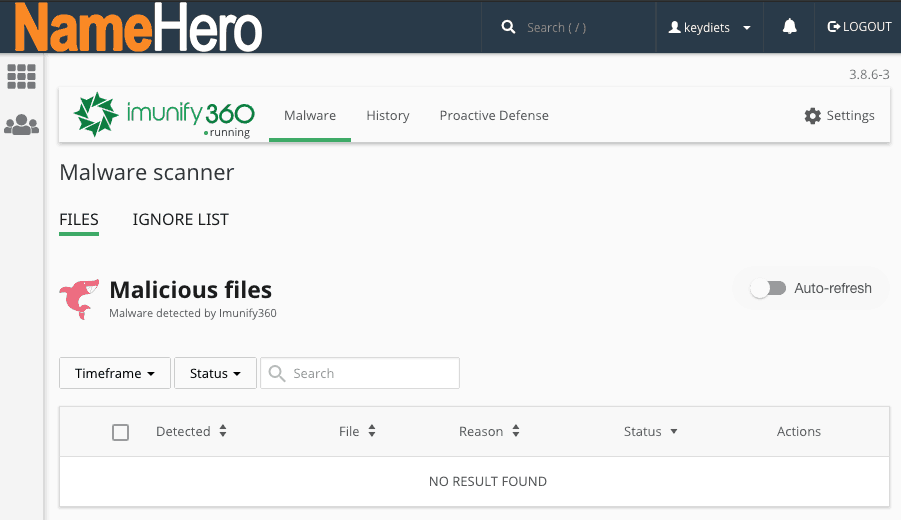
Here are the top 4 most secure web hosting providers. Most web hosts don’t include free security.
Disclaimer: I get a commission when you buy through my site, and your clicks let me buy solid gold thrones 🙂

A2 Hosting 9.9
A2 Hosting is the most secure web hosting provider, with free security on all their plans, including Patchman, which automatically updates vulnerable files without changing your software version. Pricing starts at just $2.99/m.
- Free HackScan
- Free Patchman
- Server-rewind
- Free WAF
- Free Virus Scanning
- Brute force defense.
NVMe Drives
Server Rewind
Global Data Centers
cPanel Hosting

NameHero
- Free Imunify360 protection
- Free daily and weekly backups
- Unlimited storage
- LiteSpeed web server
- In-built server-side caching
- Free domain name

HostArmada
In addition to Imunify360, HostArmada has a secure, custom-built WAF and free rate limiting on its web hosting plans. DDoS protection is also enabled by default. Pricing begins at $2.99/m.
9.6
★★★★★
75% off!
- Free 7-21 day backup retention
- LiteSpeed on “Speed Reaper” plan
- Imunify360 protection
- Global data centers
- NGINX web server
- Free WAF

KnownHost
- Free Imunify360 protection
- LiteSpeed web servers
- Free 2-day + weekly backups
- Free WAF
- Free server-side caching
- Opcache enabled
Table of Contents
1. A2 Hosting: Most Secure Web Hosting
I rank A2 Hosting as the most secure web hosting provider because of the free Imunify360 and Patchman. Other web hosts like KnownHost include Patchman for an additional fee, but A2 Hosting offers it for free.
Here are the pros and cons of A2 hosting:
A2 Hosting Pros:
- Free Imunify360 security
- Free Patchman security
- Free WAF
- High discounts
- Asia data centers
A2 Hosting Cons:
- Free backups unavailable on starter plan
- NVMe drives only available on Turbo plans
- LiteSpeed only on Turbo plans
A2 Hosting’s main disadvantage is that the best features are reserved for the Turbo plans, including LiteSpeed and dynamic HTML caching. However, the security features are available for all plans, including Patchman, making A2 Hosting one of the most secure hosting providers.
A2 Hosting Hacking Incident
One of the reasons why A2 Hosting takes security so seriously is that years back, A2 Hosting was subject to a massive ransomware attack that devastated its servers. Customers lost data, and the ransomware even corrupted the backups. The security incident left a deep impression on A2 Hosting, which now has the most robust security protections of all the shared hosting companies.
2. NameHero Secure Web Hosting
NameHero uses Imunify360 on all its shared hosting plans to secure your site from malware. Here’s a screenshot of the cPanel Imunify360 add-on in action on NameHero:

The proactive defense constantly scans your files and quarantines threats, which makes NameHero security valuable.
NameHero Pros:
- Free Imunify360
- Free nightly and weekly backups
- LiteSpeed web server
- In-built caching
NameHero Cons:
- 1-day backup only (and weekly)
- No Patchman add-on
- No Asia data center
NameHero is also the cheapest host on this list, with prices starting at $1.34/m. Here’s the best NameHero coupon to use.
3. HostArmada Secure Hosting with Free Malware Removal
HostArmada uses a custom WAF and has sophisticated rate-limiting rules for free on all its plans. You can get more details in my HostArmada security article.
HostArmada Pros:
- Imunify360 protection
- Custom WAF
- Rate limiting
- Global data centers, including Asia
- NGINX/LiteSpeed web server
- 7-21 day backup retention
HostArmada Cons:
- No unlimited storage
- Litespeed only on Speed Reaper plan
- No dynamic caching with NGINX
In addition to the security features, the HostArmada backups are the best in the shared hosting business, with even the cheapest plan allowing you to access seven days of backups. It’s not as cheap as NameHero, but the starting price is $2.99/m, which is comparable to A2 Hosting. Here’s the best HostArmada coupon to get started.
4. KnownHost Security: Secure Web Hosting with Backups
KnownHost is the last on my list of web hosts with free security because they’re more expensive than the others and have more limited resources. But KnownHost has free security for all its shared hosting plans with Imunify360, brute force protection, and a WAF.
KnownHost Pros:
- Imunify360 protection
- Brute force protection
- LiteSpeed web server
- In-built caching
- Free backups
- Patchman add-on
KnownHost Cons:
- Only 2-days + weekly backups
- Limited storage
- No NVMe drives
KnownHost starts at a higher price than the other web hosts on this list at $3.47/m and also has tighter quotas on storage and the number of e-mail accounts. But this also means KnownHost can guarantee performance compared to the others. This page will help you find the correct KnownHost coupon code for all your needs.
KnownHost backups are also very sturdy, which can be considered a part of security since it helps you recover from hacked websites, though not as sturdy as HostArmada. In addition to Imunify360, KnownHost also offers the Patchman add-on for a fee, which fixes vulnerable files without updating the entire software stack.
The Four Components of Secure Web Hosting
I will rank my recommendations based on the four essential components of web hosting security.
Application WAF (Web Application Firewall)
A Web Application Firewall (WAF) is software that detects incoming threats that target specific applications. For example, a WordPress application is vulnerable to XML-RPC attacks, and new plugin vulnerabilities are caught daily. A good web host will constantly update its WAF ruleset to deal with the latest vulnerabilities.
Without a WAF, your website is naked to hackers that constantly probe your application for weaknesses.
Malware Scanning (and Removal)
If an attacker slips through the WAF and manages to exploit a vulnerability on your site, your web host should scan your files at least once a day and identify compromised files infected with malware. As a bonus, it should also give you a choice to quarantine or fix the affected files.
A related service is patching outdated files. While these happen automatically when you upgrade to the latest version of your application, sometimes businesses continue using older versions for compatibility reasons. A sound security system patches vulnerable files without changing the application version. Some hosts add this functionality for free, while others charge extra for it.
Brute Force Protection
Hackers can overwhelm your site by bombarding your login page with endless combinations of usernames and passwords, hoping to find a crack. Even if they fail to break through, these attacks can bring your server to its knees by draining its resources. A good web host will identify these brute-force attacks as part of its security architecture and lock them out.
DDoS Protection
Distinct from brute force attacks, a DDoS attack floods your server with useless requests with the explicit purpose of crashing your site. These attacks can come from everywhere at once and result in millions of hits to your server. If your web host doesn’t protect you, your site will stop working – not just yours, but that of everyone else on the server.
Most web hosts offer DDoS protection because it’s in their interests to keep everyone on a shared server happy.
Here is how these web hosts rank based on the above criteria.
Paid Security Add-ons Usually Not Worth it
Many web hosts will sell you security add-ons for an additional fee. For example, HostGator has SiteLock, which isn’t worth it. SiteGround has its SG Site Scanner add-on, and DreamHost has the “DreamShield Protection” service, which scans your site regularly for malware.
If your web host doesn’t provide you with free security, you can try the free Jetpack Protect that scans your site once a day and alerts you if it finds any malware. If you subscribe to the Cloudflare “Pro” plan, it comes with an extensive WAF with unique rulesets for popular applications like WordPress. You can pay for Jetpack’s premium security subscription if you want more security.
Two Tools for Web Hosts Use for Malware
There are two popular tools that web hosts use to provide malware scanning and removal, along with patching vulnerabilities.
Imunify360
Many of the above web hosts use Imunify360 to scan for malware and quarantine or remove infected files. Imunify360 is a plugin for cPanel, Plesk, and DirectAdmin, and web hosts provide access to it for free once they’ve purchased a license. Imunify360 examines scripts in real-time and responds to detected threats by quarantining or removing the files. You can configure the mode in which Imunify360 runs via the plugin settings.
In addition to malware scanning, Imunify360 also integrates a firewall with heuristics gleaned from all Imunify360 installations. So when you enable this tool, you become part of a network that shares information about threats in real time. This way, security responses can propagate fast.
Patchman
As a complement to Imunify360, Patchman addresses a common gap in security solutions – outdated files. Customers often forego updating their software to the latest version because of compatibility issues. Vulnerabilities that target outdated versions of applications like WordPress are very successful because of this. But there’s no easy solution because updating a framework can break critical site functionality.
Patchman addresses this problem by identifying vulnerable files and patching them to the latest version without changing the software version. Only those files that include vulnerabilities are patched, leaving the rest of the application untouched. Chances are, your software doesn’t depend on these vulnerable files. But just in case, you can always roll-back the changes.
Unlike Imunify360, Patchman is usually offered as a paid add-on. Only A2 Hosting offers it for free on all its plans, which why it’s #1 on my list of recommended web hosts for free security.
These Days All Web Hosts Offer Free SSL
After 2018, all web hosts began to offer free SSL when it became clear that HTTPS was a ranking factor. Google now even has a special HTTPS report in the Google Search Console (GSC), and if you’re not careful, you’ll get errors saying “HTTPS not evaluated”. So make sure your site has HTTPS encryption one way or another.
Web Hosts Should Allow SSH Access
If your web host doesn’t let you connect to your website via SSH, then it’s not a very secure web host. SSH and cPanel SFTP access are the safest ways to connect to your site. All of the above hosts allow SSH access, even if you need to enable it first.
Use Cloudflare Zero Trust to Protect your Login Pages
A great way to improve your security is to use the free Cloudflare Zero Trust app to protect your login page. Once you’ve set it up, only the owners of a select number of e-mail addresses will be allowed to access your login page. Cloudflare will send them an OTP to confirm their identity.
This frees you from having to set up a VPN to protect the sensitive areas of your application.
Final Thoughts on Secure Web Hosting
I consider security to be one of the key web hosting features, along with backups and dynamic caching. If your web host doesn’t provide you with free security, then I strongly suggest choosing a hosting provider from the list above. If you want to continue using your existing provider, I would recommend using one of the free security alternatives like Jetpack. Otherwise, you have to pay extra for what should be included with any good web hosting service.


Speak Your Mind